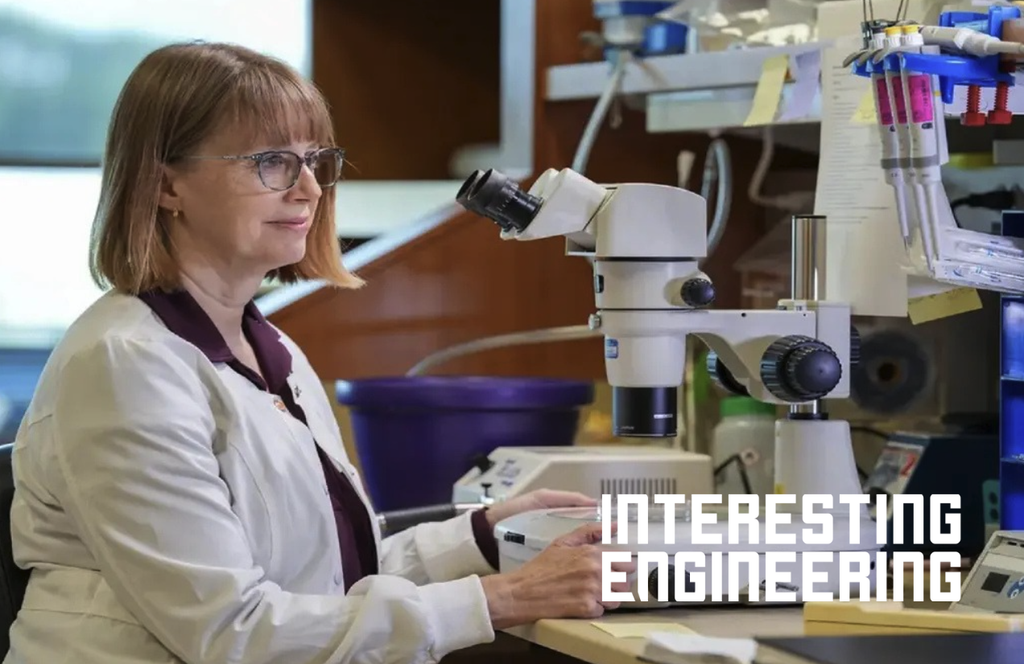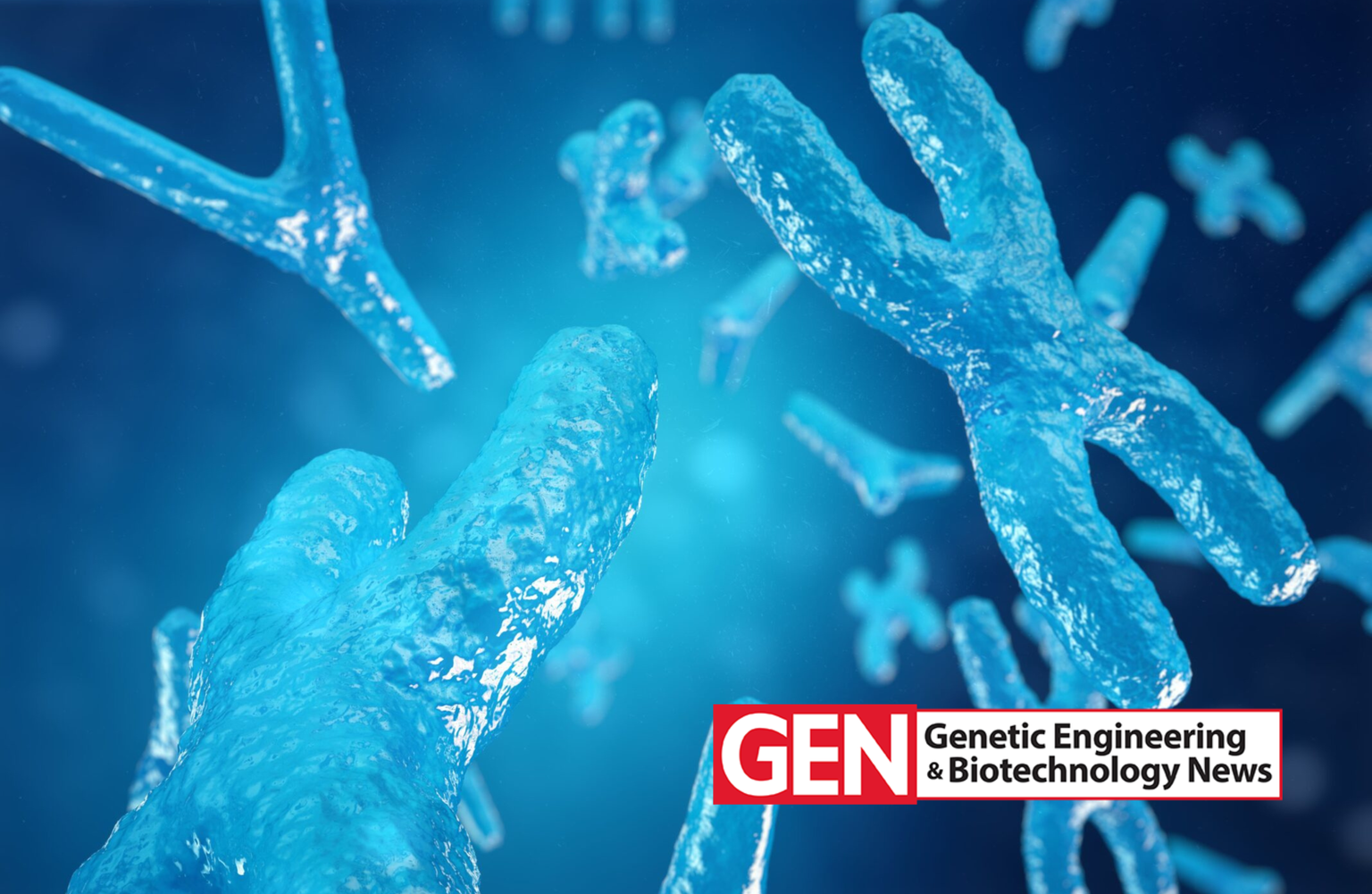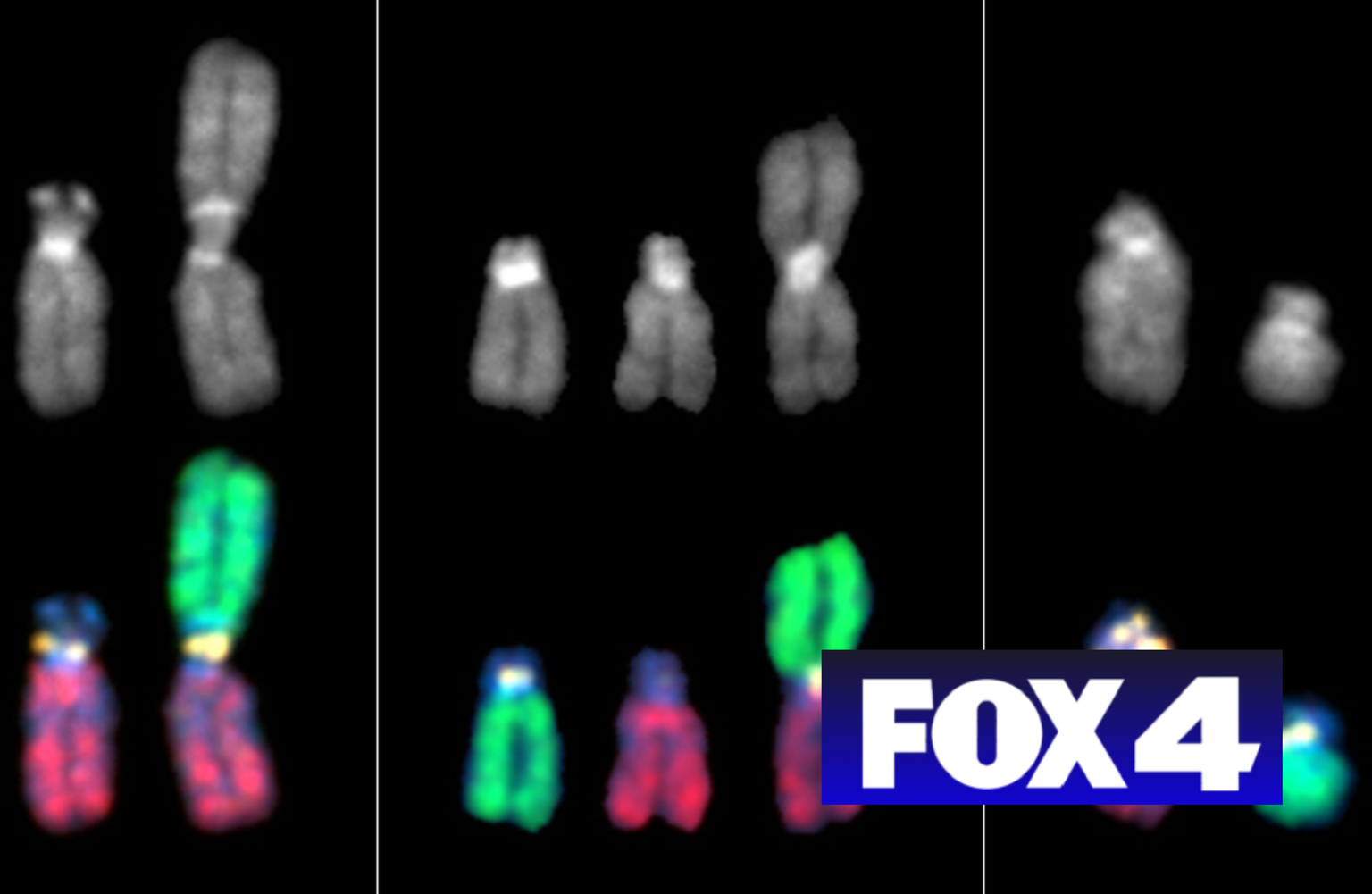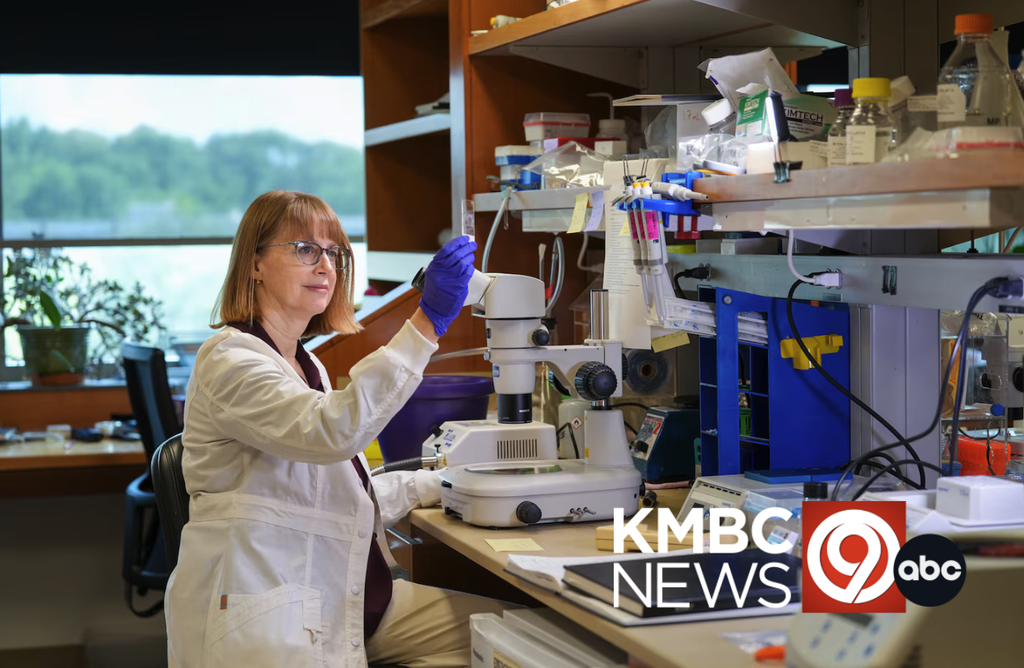Tamara Potapova, Ph.D., Research Specialist II from the lab of Stowers Investigator and Dean of the Stowers Graduate School Jennifer Gerton, Ph.D., recently received the National Institutes of Health’s (NIH) Research Specialist Award (R50), a five-year grant supporting scientists performing research within an existing lab.
The R50 award is designed to encourage research opportunities for exceptional scientists pursuing projects within the context of a Principal Investigator’s research program. Intended to provide financial support and autonomy, award recipients obtain economic stability independent of Investigator funding to further their research as well as the lab’s.
“Jen’s lab is excellent,” said Potapova. “I am grateful for this award from the NIH, which is allowing me to expand my expertise working with cell cultures, microscopy, and the study of chromosome behavior during cell division to answer many fundamental questions. Identifying knowledge gaps and asking those big questions is a critical component of the Gerton Lab’s ecosystem.”
When cells divide, they copy their chromosomes — the DNA and protein packages found within the nucleus of a cell — and make sure each new cell gets the right set. Central to this process are centromeres, regions approximately located at the center of a chromosome. These regions hold duplicated chromosomes together and serve as the binding sites for specialized structures called kinetochores — molecular machines that help pull the chromosome apart into two new cells.
Centromeres are some of the most challenging genomic regions to sequence, partially because they can contain hundreds of repeating segments of DNA. They also vary greatly in size as well as epigenetic signatures, which are chemical tags that can regulate how genes are turned on or off. In addition, centromeres can vary not only on from one chromosome to another but also on the same chromosome in different people.
When chromosomes do not separate properly during cell division, it can lead to the wrong number of chromosomes, known as aneuploidy, and cause genomic instability, both of which are linked to cancer and age-related infertility issues. This is a key focus of the Gerton Lab. Potapova’s R50 project titled, “Deciphering genome integrity maintenance using cytogenomics,” aims to uncover the genetic origins of aneuploidy and chromosome instability. As both factors are implicated in the origin and progression of cancer, Potapova’s research will combine innovative tools such as super-resolution imaging, cytogenetics — the study of how a cell’s chromosomes function during cell division, — and advanced DNA-analysis techniques to explore how the differences in centromeres between individuals might influence the way chromosomes are passed on during cell division.
Potapova has played key roles investigating chromosome structure, function, and dynamics for Gerton Lab research since 2016, and specifically in those tricky-to-sequence centromeres. She’s also made significant contributions to the global whole genome sequencing initiative, the Telomere-to-Telomere (T2T) consortium.
Developing the methodology to tackle these challenging genomic regions takes time, resources, and collaboration — something that the Stowers Institute excels at.
“It’s very easy to ruin a good question with by addressing it with suboptimal methods,” said Potapova.
However, with T2T’s whole genome assembly datasets made publicly available and the Stowers Technology Center scientists who assist in accelerating the analysis, Potapova and the Gerton Lab may discover entirely new principles for how chromosomes are maintained, evolve, and shape our diversity.
“I am excited to continue my research,” said Potapova. “Unraveling how centromere variations affect chromosome transmission will improve our understanding of chromosome instabilities that can lead to cancer, thus supporting the NIH and the National Cancer Institute’s mission to advance cancer research.”



